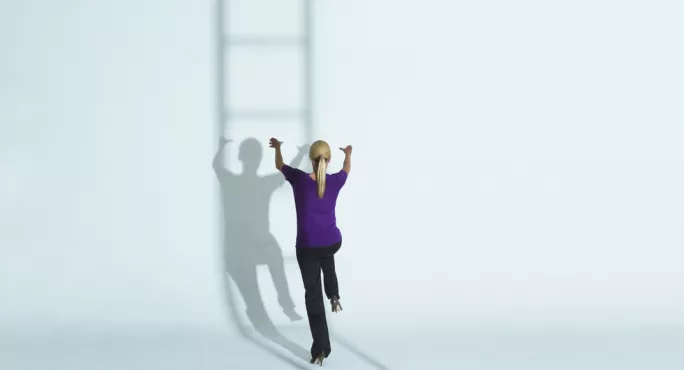- Home
- ‘It’s a kick in the teeth for experienced teachers’
‘It’s a kick in the teeth for experienced teachers’

This week, news broke that the Department for Education is commissioning research into whether this year’s teacher pay rise has had any “unintended impacts” on the retention of more experienced teachers.
The 3.1 per cent pay rise, which happened in September, included a 5.5 per cent increase in the starting salary for the profession - but just 2.75 per cent for the bulk of experienced teachers.
I feel I can save the DfE a lot of money and time by telling it that it absolutely will have contributed to the feelings of being undervalued that experienced classroom practitioners have felt for many years - but it’s not the only factor.
In 2018, the DfE asked CooperGibson to conduct some research into the factors affecting teacher retention, and the results weren’t exactly ground-breaking. CooperGibson confirmed what many experienced teachers in the profession had been saying for years: workload is too high, there are few progression opportunities, there’s a lack of autonomy and there is a poor work-life balance.
Teacher pay: Why is dedication not rewarded?
Ask any experienced teacher about workload, and I am sure that they will agree that it is not only too high but it has also steadily increased over the past decade. For me, certainly, heading towards my 15th year of teaching, the profession bears little resemblance to the one I entered, in terms of paperwork and accountability.
The DfE survey found that there was evidence that early-career teachers made the decision to leave the profession fairly quickly. By contrast, more experienced teachers were likely to wait it out over a couple of years - they are invested and committed to their profession, and agonise over the decision to leave.
So why does the government not see this, and reward experienced teachers for their dedication to the job, rather than just trying to attract new entrants to the profession with the promise of higher wages?
The backbone of the profession
What the DfE seems to fail to realise is that experienced teachers are the absolute backbone of the profession. They are the beating hearts that keep staffrooms vibrant and alive.
As a young teacher, there were many times when I retreated into the sanctuary of the staffroom after a difficult lesson, to listen to the wise words of seasoned colleagues. These colleagues not only made me feel that I wasn’t alone but also offered ideas for practical strategies and solutions for whatever pedagogical problem I faced.
Obviously, teaching is not a profession that anyone enters with the aim of making money and getting rich. But it would be nice to be rewarded for our loyalty on the upper pay scale by getting a pay rise of a bit more than 2.75 per cent, when early-career teachers are getting 5.5 per cent.
If the government really wants to show that it values experience - and wants to reward the devotion that experienced teachers of a decade and above have given to educating their pupils - then pay would be a good place to start. But tackling workload and taking steps towards creating a better work-life balance for teachers is just as important also - particularly in this time of 24-hour contact on digital channels like Teams, where students are increasingly contacting staff outside school hours.
A kick in the teeth, in a long line of kicks in the teeth
Experienced teachers understand that there is no easy fix, and that there are other public service professions that also work long hours with a heavy workload - take the police, for example. Yet, in their recent pay increases, police constables at the beginning of their career received a similar pay increase as those at the very top of the pay scale: around £1,000.
For those of us who are at the top of the pay scale and love being in the classroom, and who do not want to be middle or senior leaders, there seem few options available for development and renumeration. With the axing of the advanced skills teacher and excellent teacher roles, some schools are able to afford lead practitioners, but these vacancies are few and far between.
So the unequal pay rise is not just unfair - it is a kick in the teeth, in a long line of kicks in the teeth, for teachers who have lasted the distance and have long felt unappreciated. But it’s not the only factor that needs to be looked at, in order to retain them.
Of course, recruiting new teachers to the profession is vital. As a very experienced teacher, I have learned so much from new teachers over the years. However, without those school stalwarts who have turned up day after day and given their all for years, schools, as we know them, simply could not function.
Teachers on the upper pay scale deserve the same pay rise as those just starting out. And feeling undervalued will certainly only add to the dissatisfaction they feel about remaining in the profession. No expensive research is needed to work that one out.
Haili Hughes is an English teacher at Saddleworth School in Oldham, Greater Manchester. She has written a book about retaining experienced teachers, called Preserving Positivity, published by John Catt and available from John Catt or Amazon. She tweets as @HughesHaili
Keep reading for just £1 per month
You've reached your limit of free articles this month. Subscribe for £1 per month for three months and get:
- Unlimited access to all Tes magazine content
- Exclusive subscriber-only stories
- Award-winning email newsletters



